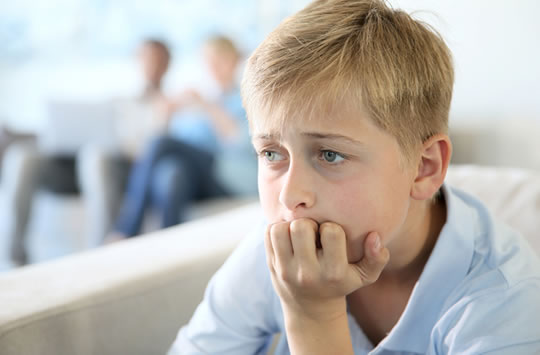Anxious parents tend to pass on their anxiety to their children — but this doesn’t have to be the case.
A new study finds that a family therapy intervention can help break the cycle of anxiety from parent to child.
The study included 136 families where at least one parent struggled with anxiety.
They were split into three groups, which received either:
- a year’s therapist-directed family therapy,
- or written instructions,
- or nothing.
After just one year, 31% of children of parents with anxiety who did not go to therapy or get instructions had developed anxiety.
Dr Golda Ginsburg, a psychiatrist and first author of the study, said:
“The finding underscores the vulnerability of offspring of anxious parents.
If we can identify kids at risk, let’s try and prevent this.”
However, in the group that received therapy the number of children that developed anxiety in one year was just 9%.
In the instruction group, 21% developed anxiety.
Families in the therapy group were taught to identify the signs of anxiety and how to deal with them.
One is called ‘the reality check’.
It’s all about deciding which anxieties are worth paying attention to, explained Dr Ginsburg:
“We taught the kids how to identify scary thoughts, and how to change them.
For example, if a child is afraid of cats and encounters one in the street, the child can first identify the scary thought: “That cat is going to hurt me.”
Then the child can test that thought — is it likely that the cat will hurt me?
No, the cat doesn’t look angry.
It isn’t baring its teeth or hissing, it’s just sitting there.
OK, I can walk past that cat and it won’t do anything.”
The family therapy consisted of eight one-hour sessions, but Dr Ginsburg wonders if this is enough.
Just as you might go for a medical check-up, there could be value in having a psychological check-up from time-to-time.
Dr Ginsburg said:
“I’d say we need to change our model of mental health to a checkup method.
Like going to the dentist every six months.”
The research was published in the American Journal of Psychiatry (Ginsburg et al., 2015).
Anxious child image from Shutterstock

